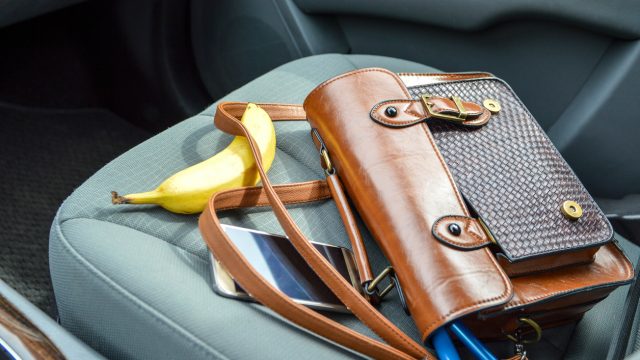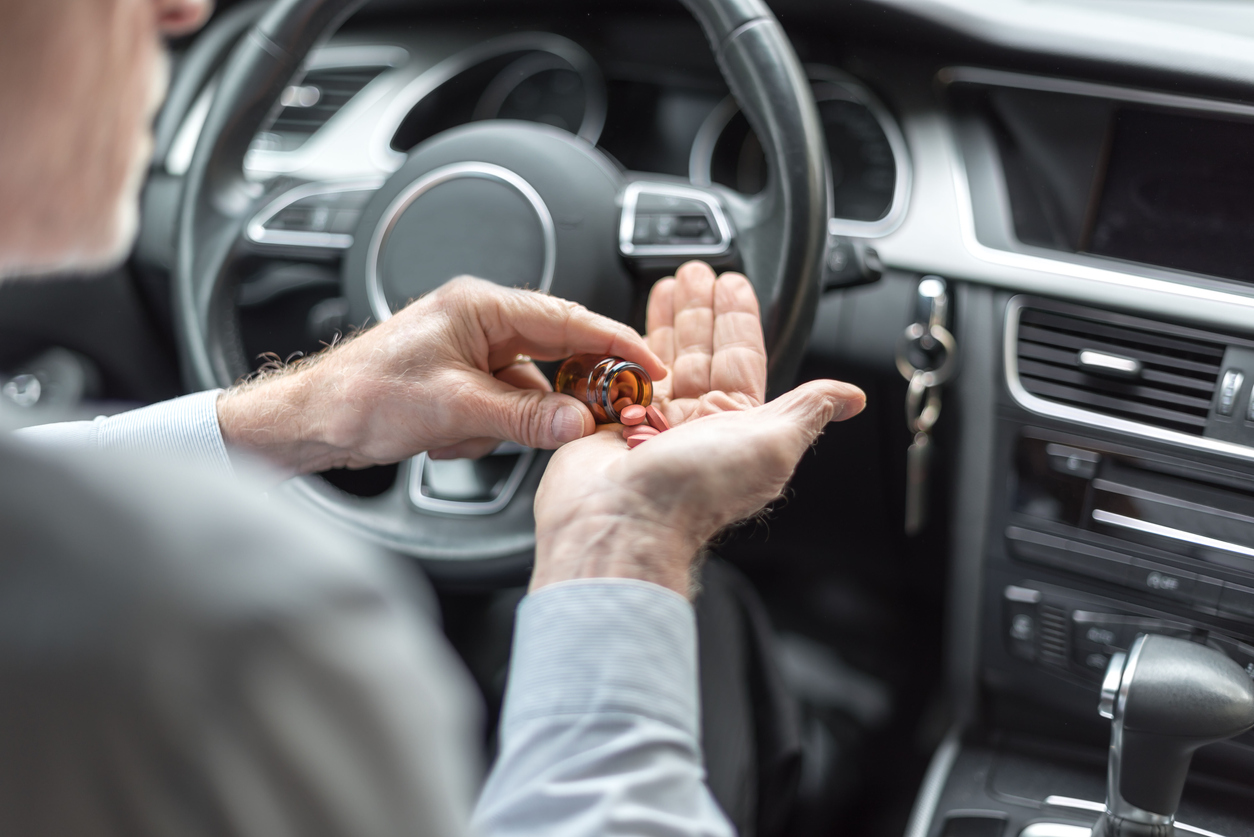The No. 1 Thing You Should Never Keep in Your Car
Doctors agree: It's a bad idea to leave prescription meds in your glove compartment.

There are countless things you can probably guess that you shouldn't be leaving in your car. Obviously displayed valuables. Your passport. Family pets. Your house keys. However, doctors, medical agencies, and government bodies are all united in the one thing that you really shouldn't be storing in your car, which you may not have thought about. The consensus is that keeping your prescription medicine in your car is a really bad idea.
The main reason? Temperatures that are either too hot or too cold could render your medication useless, at best, or dangerous, at worst. "The chemicals and components of some drugs can be changed when exposed to different temperatures," the experts at Baystate Health in Massachusetts explain. "For example, drugs that contain hormones (think birth control, chemotherapy drugs, anti-seizure medications, and antibiotics) don't work as well when exposed to temperatures outside their recommended storage range."
Skye McKennon, BS, PharmD—an associate instructor at the University of Utah Wellness & Integrative Health—points out that most medication manufacturers advise optimal storage to be at a room temperature of 68 to 77 degrees. While that temperature range is where manufacturers guarantee product integrity, most medication can safely survive a range of 59 to 86 degrees, The Atlantic reports.
Outside of those temperatures, like "during heat waves and cold spells … medicines [can] physically change, lose potency or even threaten your health," McKennon told The New York Times in 2011.

So does this mean that leaving your prescription medicine in the car on milder days is fine? Well, not exactly. The National Weather Service (NWS) expressly warns not just of how fast your car can heat up, but also that objects within it will heat up faster. Here's why: Though the atmosphere and windows of a car are relatively transparent to the sun's shortwave radiation, this energy rapidly heats objects that it strikes. These heated objects then give off longwave radiation that heats the air around it, so even if your medication isn't in direct sunlight, those pills will still be heating up.
The NWS's own experiment found that with an ambient temperature in the low 90s, the interior temperature of a car could rise from 83 to 104 degrees in just 40 minutes. Similarly, the humidity present in a poorly ventilated bathroom (where your medicine cabinet most likely is) could have a detrimental effect.
At the other end of the spectrum, a considerable drop in temperature is also bad for your meds. For reference, this is why on airplanes (Air Canada measures their Boeing 767's storage temperature as around 44 degrees), you should keep your medication in your carry-on luggage.
RELATED: For more up-to-date information, sign up for our daily newsletter.
Obviously, there will be times when you do need to have medicine in the car with you, but sensible precautions can mitigate the risk of damage. The Baystate Health experts recommend that you don't store them in the trunk, instead keeping them in the cabin of the car where the ventilation is better. Any medication that requires cold storage (like insulin and EpiPens) should be transported in an appropriate cooler. And whatever you do, don't put your medication in your glove compartment, where you're all the more likely to forget it at the end of your journey.
If you have any doubts about the appearance of your medication when it's been through extreme heat or cold—if it's stuck together, appears to be more liquid than usual, has changed in consistency, smells different, or has partially dissolved—check with a qualified pharmacist before taking your medication. And for more everyday advice, check out The No. 1 Worst Thing to Keep in Your Wallet.





















